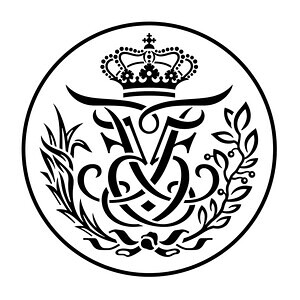Application deadline: March 1, 2023
Philip De Langes Allé 10
1435 Copenhagen
Denmark
Hours: Monday–Friday 9am–4pm
T +45 41 70 15 00
info@kglakademi.dk
The architecture programme Urbanism & Societal Change (USC) is an accredited two-year Master of Arts in Architecture education at the Royal Danish Academy in Copenhagen. Based within the Institute of Architecture, Urbanism and Landscape, it is one of seven master programmes taught in English at the academy. The programme builds both upon the academy’s tradition of a multi-scalar architecture education spanning architecture, urban design and spatial planning—and the intention to develop evolving forms of design agency in response to the complex and manifold spatial challenges of our contemporary time. Central to the programme is the coupling of research and design practices within a space of interdisciplinary and multi-actor dialogue.
About the programme
Profound societal transformations and challenges, ranging from the massive implications of climate change and environmental degradation, to extreme social inequality, and shifting demographic conditions, indicate that we can no longer expect the future conditions of the discipline to be an extrapolation of the past. These emerging conditions—with political, economic, technological, ecological, social and cultural dimensions—challenge our established understandings of spatial production and spatial agency. In this context, the capacity of architects to identify and analyze evolving conditions affecting the discipline, to make new problem formulations, form new alliances, engage new methods, and to negotiate and formulate alternative visions for collective futures, becomes increasingly vital.
The education focuses on research-based design approaches in which students generate knowledge and propositions related to specific thematics, conditions, and contexts. In addition to immersion in architectural design, urban design, strategic spatial planning, and systemic design approaches—students are exposed to a range of research methodologies, theory and history frameworks; and representational and rhetorical techniques as a basis for developing novel spatial and organizational proposals.
The physical studio space of the programme is the core educational environment in which an intensive explorative culture of collective learning and experimentation is fostered. Students are expected to work persistently in the space, with regular structured studio teaching days, and supporting lectures, workshops, study tours, and reading seminar inputs from a broad network of expert actors from various fields.
The two-year program is conducted over four semesters. The project work of the first three semesters is based upon a sequence of thematics addressing important societal challenges played out in both local and international contexts. The thematics offer a range of entry points to design, architectural, urban design and spatial planning proposals that range in scale from the multipliable building component to the regional territory. Each thematic semester engages a chosen network of site-specific institutions, collaborators, and experts that embed the semester work in the full complexity of its context. Past semester thematics have included: radical spatial planning pathways for climate mitigation; the socio-spatial segregation of socially vulnerable housing areas; reinterpretations of the concept of the “welfare city”; spatial adaptation for sea-level rise; and future alternate spatial practices of food production. Sites have ranged from Copenhagen to Beijing, Helsinki and Riga; and outcomes have included exhibitions, films and publications.
The fourth and final semester is dedicated to the development of the design thesis project addressing a societal change, context and programme of the student’s selection, which is researched in the third semester. Students are actively supported by faculty in the development of relevant, coherent, mature, provocative, and thoroughly iterated research, programmes and propositions.
Lecturers, critics, and collaborators in recent years have included: Keller Easterling, Indy Johar, Milica Topalovic, Joost Grootens, Gabu Heindl, Andreas Quednau, Wouter Vanstiphout, Jan Gehl, Marco Steinberg, Sandi Hilal, Olaf Grawert, John Lin, Tom Nielsen, Line Gordon, Philipp Schaerer, Kristoffer Lindhardt Weiss, Jörg Stollmann, Christopher Roth, Filip Dujardin, Forbes Massie, Archie Cantwell, Carolyn Steel, Rainer Hehl, Nicolay Boyadjiev and Charlotte Malterre-Barthes, amongst others.
Faculty
Deane Simpson (Programme Head), Jan Loerakker and Michael Asgaard Andersen (Semester Leads), Charles Bessard, Tamara Kalantajevska, Carlos Ramos Tenorio, Stine Christiansen, Cameron Clarke, Nina Stener Jørgensen, and Simon Sjökvist.
Online open house event: January 31, 11:30am–1pm CET
Application deadline: March 1, 2023


















